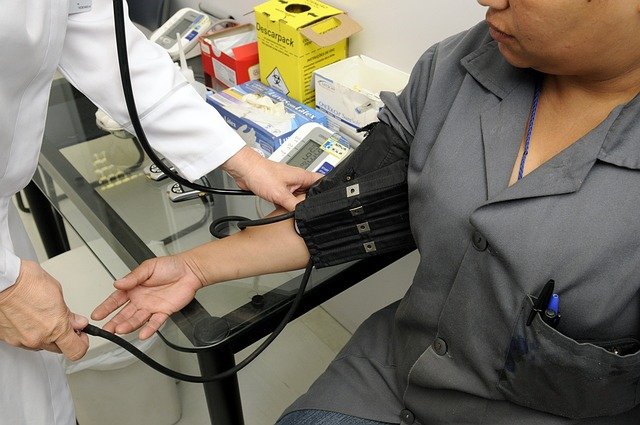Treatment Options for Kidney Disease
Kidney disease affects millions of people and often develops silently over time. Understanding early signs, available treatment options, and the importance of lifestyle changes can help individuals manage the condition, protect kidney function, and improve overall well-being.

What Are the Early Signs of Kidney Disease?
Recognizing early signs of kidney disease can be challenging since symptoms often don’t appear until significant kidney damage has occurred. Common warning signs include persistent fatigue, swelling in the legs and ankles, changes in urination patterns, and unexplained shortness of breath. Some individuals may experience nausea, loss of appetite, or difficulty concentrating. Blood in urine, foamy urine, or persistent back pain near the kidneys are also potential indicators that warrant immediate medical attention.
Which Treatment Options for Kidney Conditions Are Available?
Treatment options for kidney conditions vary depending on the stage and underlying cause of the disease. Early-stage kidney disease often involves managing underlying conditions like diabetes and high blood pressure through medication and lifestyle modifications. Advanced stages may require more intensive interventions including dialysis or kidney transplantation. Medications such as ACE inhibitors or ARBs help protect kidney function, while diuretics manage fluid retention. Newer treatments like SGLT2 inhibitors have shown promise in slowing kidney disease progression.
Why Is the Importance of Regular Checkups Critical?
The importance of regular checkups cannot be overstated for individuals at risk of kidney disease. Routine blood tests measuring creatinine levels and estimated glomerular filtration rate (eGFR) can detect kidney function decline before symptoms appear. Urine tests can identify protein presence, indicating potential kidney damage. Regular monitoring allows healthcare providers to adjust medications, implement preventive measures, and slow disease progression. Early intervention through consistent medical care significantly improves long-term outcomes and may prevent the need for more invasive treatments.
How Do Lifestyle Changes Support Kidney Health?
Lifestyle modifications play a fundamental role in managing kidney disease and preventing further damage. Dietary changes include reducing sodium intake, limiting protein consumption as directed by healthcare providers, and controlling phosphorus and potassium levels. Regular physical activity helps manage blood pressure and blood sugar levels, both critical factors in kidney health. Smoking cessation is essential, as tobacco use accelerates kidney damage and increases cardiovascular risks. Adequate hydration, while avoiding excessive fluid intake in advanced stages, supports optimal kidney function.
What Lifestyle Tips for Kidney Health Work Best in America?
In the United States, kidney disease affects approximately 37 million adults, with diabetes and high blood pressure being the leading causes. American dietary habits often include high sodium and processed foods, making nutritional counseling particularly important. The National Kidney Foundation recommends following the DASH diet, which emphasizes fruits, vegetables, whole grains, and lean proteins while limiting sodium intake. Many Americans benefit from working with registered dietitians who specialize in kidney disease to create personalized meal plans that accommodate cultural preferences and lifestyle needs.
What Are the Costs Associated with Kidney Disease Treatment?
Kidney disease treatment costs vary significantly depending on the stage and required interventions. Early-stage management through medications and regular monitoring may cost $3,000-$8,000 annually. Dialysis treatments average $72,000-$90,000 per year, while kidney transplantation can range from $300,000-$400,000 for the procedure and first-year care. Insurance coverage, including Medicare, typically covers most kidney disease treatments, though copayments and deductibles apply.
| Treatment Type | Average Annual Cost | Insurance Coverage |
|---|---|---|
| Early-stage medication management | $3,000-$8,000 | Usually covered with copays |
| Hemodialysis | $72,000-$90,000 | Medicare/insurance covered |
| Peritoneal dialysis | $65,000-$75,000 | Medicare/insurance covered |
| Kidney transplant (first year) | $300,000-$400,000 | Typically covered after deductible |
Prices, rates, or cost estimates mentioned in this article are based on the latest available information but may change over time. Independent research is advised before making financial decisions.
Managing kidney disease requires a comprehensive approach combining medical treatment, lifestyle modifications, and regular monitoring. Early detection through routine checkups provides the best opportunity for preserving kidney function and preventing progression to advanced stages. While treatment costs can be substantial, insurance coverage and Medicare programs help make care accessible. The key to successful kidney disease management lies in working closely with healthcare providers, following prescribed treatments, and maintaining healthy lifestyle habits that support overall kidney function and general well-being.
This article is for informational purposes only and should not be considered medical advice. Please consult a qualified healthcare professional for personalized guidance and treatment.




